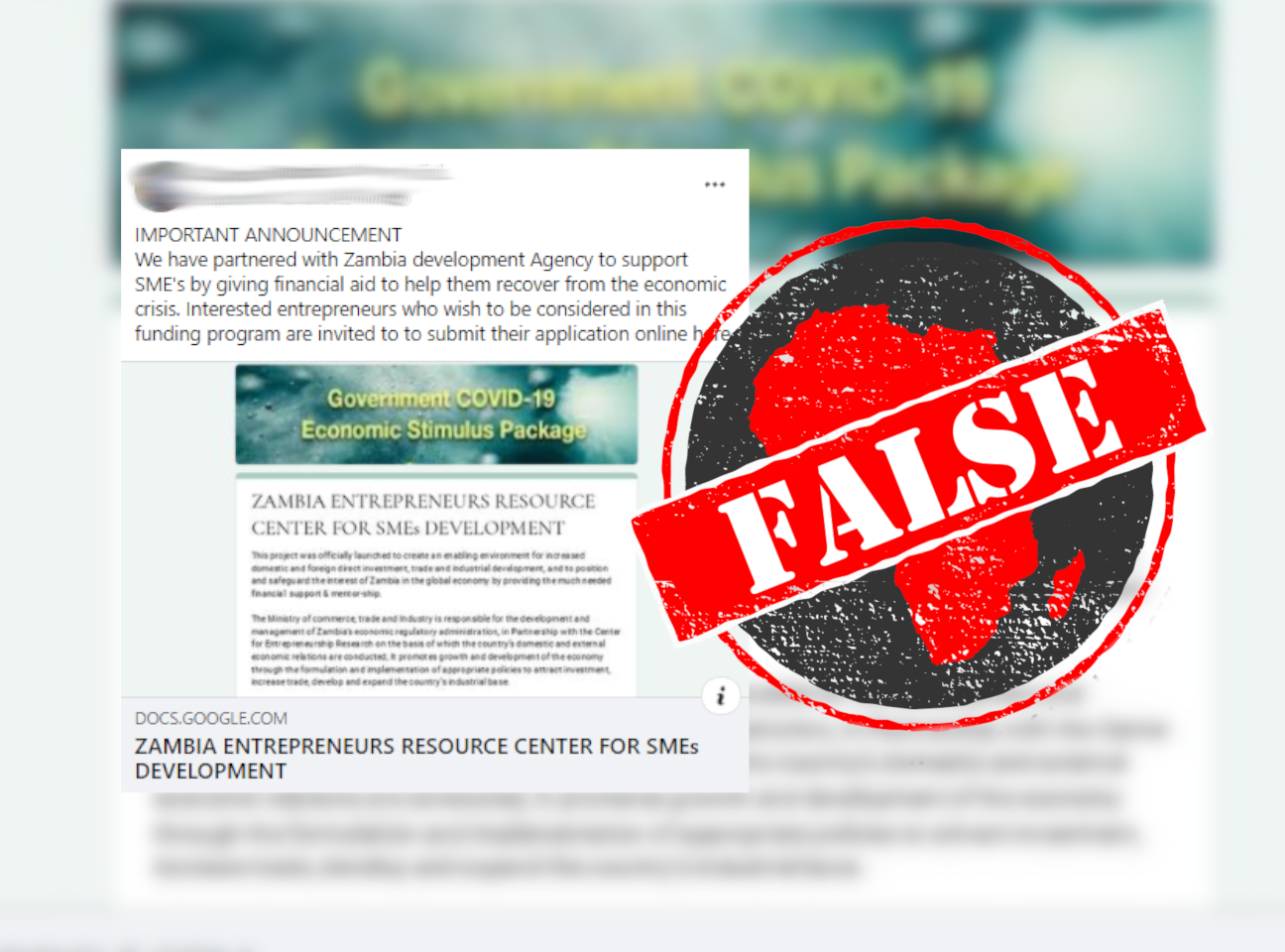Posts claiming the Zambian government is offering grants to business owners during the Covid-19 pandemic have been shared on Facebook.
One reads: “Important announcement: We have partnered with Zambia Development Agency to support SME’s by giving financial aid to help them recover from the economic crisis. Interested entrepreneurs who wish to be considered in this funding program are invited to submit their application online here.”
Another post with the same quote says Chipoka Mulenga made the promise of financial aid. Mulenga is the Zambian minister of commerce, trade and industry.
The posts link to a Google form where people are asked to submit personal information such as their full name, email address and phone number.
But is this a genuine offer? We checked.

‘Beware of fraud’, ‘scam’
The Zambia Development Agency dismissed the announcement on tTwitter account, calling it fraudulent and “fake”.
The tweet ended: “Please protect your personal data. The Minister of Commerce, Trade and Industry would never ask you to register for anything on such a platform.”
Mulenga also responded on Facebook, saying the posts were an “act of cyber crime” and that his page had been hacked.
He wrote: “Please note that this is a scam posted by some unscrupulous individuals in a ploy to unlawfully collect your contact details … We will only use authorised media to communicate opportunities from the ministry. Please DO NOT submit your information in the provided online application form.”
For more information on Facebook scams and how to spot them, read our guide here.
Republish our content for free
For publishers: what to do if your post is rated false
A fact-checker has rated your Facebook or Instagram post as “false”, “altered”, “partly false” or “missing context”. This could have serious consequences. What do you do?
Click on our guide for the steps you should follow.
Publishers guideAfrica Check teams up with Facebook
Africa Check is a partner in Meta's third-party fact-checking programme to help stop the spread of false information on social media.
The content we rate as “false” will be downgraded on Facebook and Instagram. This means fewer people will see it.
You can also help identify false information on Facebook. This guide explains how.


Add new comment